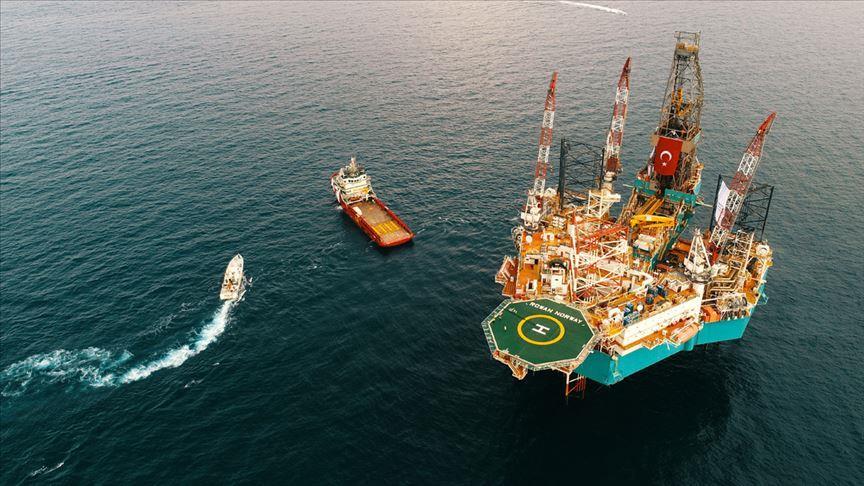The recent disclosure of Egypt's respect of Turkey's continental shelf in the Eastern Mediterranean reveals an attempt at calming down any regional tension and soothing Egypt-Turkey relations, Khalid Fouad, a Middle East energy analyst, told Anadolu Agency on Monday.
Details of the agreement between Egypt and Greece last August to delimit their borders in the Eastern Mediterranean exposed Egypt’s respect of Turkey’s maritime territory.
In the wake of this information, Turkey's foreign minister, Mevlut Calisoglu, said on March 3 that Turkey could sign an agreement on maritime jurisdictions with Egypt following negotiations.
According to Calisoglu, Egypt’s seismic exploration and licensing activities within its continental shelf are also mindful of Turkey’s continental shelf.
On March 6, the Turkish national defense minister, Halusi Akar, also reiterated that Turkey is considering arrangements with Egypt in keeping with the maritime jurisdiction limits that the country declared to the UN.
Should a maritime treaty between Egypt and Turkey be realized in the near future, Fouad anticipates great benefits for Egypt.
'A huge area of water will be added to Egypt's Exclusive Economic Zone (EEZ) through a deal with Turkey. Thus, Egypt can conduct new searches and drillings, and attract foreign investments because these areas may contain huge quantities of oil and gas,' he said.
However, this potential agreement can only be partial, as it would intersect with the Maritime Border Demarcation Agreement between Greece and Egypt signed last August, according to Fouad.
'In my opinion, the expected deal between Egypt and Turkey will apply to only a large area that has not been demarcated yet,' he said.
Having already lost 11,500 square kilometers of its continental shelf in an agreement signed with the Greek Cypriot administration in 2003, Egypt also gave up about 15,000 square kilometers from the agreement with Greece.
Egypt could gain 21,500 square kilometers of its north-sea border if the country reaches an agreement with Turkey.
Egypt holds an advantageous position in the Eastern Mediterranean with its ability to offer many export options through its two LNG terminals, Idku and Damietta, Fouad said.
The strategic target for Egypt in the Eastern Mediterranean, Fouad thinks is to become a regional hub to export its gas to global markets, especially to Europe.
However, this strategic aim involves securing its relations with Israel, as seen with the last agreement for a pipeline connecting Israel's Leviathan gas field to Egyptian LNG plants.
Egypt has put itself in the mix to offer an alternative route for the transit of Emirati oil to European markets in the agreement made between Israel and the United Arab Emirates (UAE).
As this pipeline threatens the Suez Canal, which is of geopolitical importance to Egypt, Cairo wants to support the transmission of Israeli gas via Egyptian plants instead of via the Eilat-Ashkelon pipeline.
Egypt has also been involved in discussions with Greece and the Greek Cypriot Administration to reroute the EastMed pipeline to tackle technical difficulties, make it more economically viable and address Israel’s security concerns.
But according to Fouad, Israel will not allow Egypt to have control of its gas exports via a new pipeline route that was proposed by Egypt's President Abdel Fattah al-Sisi to the Greek Cypriot Administration.
The EU is also another obstacle to the project because the union does not welcome either Egypt or Turkey in the EastMed project. Rather, it would favor cooperation between the Greek Cypriot Administration and Greece as members of the union and Israel.
By Busranur Begcecanli
Anadolu Agency
energy@aa.com.tr


